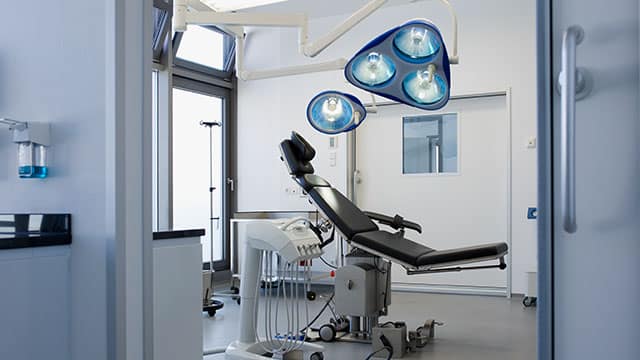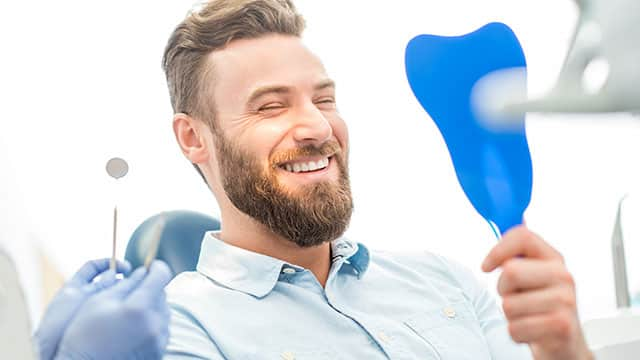Tooth Decay in the Ancient World
As early as 5,000 B.C., ancient Sumerians first referred to tooth decay in written text as "tooth worms," according to the American Dental Association (ADA). But it was an Egyptian, Hesy-Re, who is thought to be the first noted dentist.
Maybe you've wondered how ancient humans maintained oral hygiene — especially since they didn't have fluoride toothpaste to keep their pearly whites shining. A study published in PLOS One notes that our ancestors actually had remarkably few cavities, thanks in part to their diet and consumption of weeds with antibacterial properties.
Medieval Dental Practices
The ADA notes that the Chinese were the first to use fillings made of amalgam (as early as 700 A.D.), but it was in medieval Europe where texts on performing and regulating dental surgery were first identified, explains the ADA. By 1210 in France, dental surgeries, including tooth extractions, were routine. In the 16th century, these procedures appeared in published books dedicated to dentistry, which described tooth extraction, jaw anatomy and tooth decay in depth, among other dental matters. Medieval care providers also began experimenting with anesthesia, concocting herbal mixtures from substances such opium and hemlock, notes the Wood Library-Museum of Anesthesiology.
New Tools in the Age of Enlightenment
The ADA notes that root canals, dentures and crowns were part of dental services by the mid-1700s. Dental professionals of the time were already tackling cosmetic concerns and attempting to make gold crowns look as much like natural teeth as possible.
America's Founding Fathers played a role in the history of dentistry, too. Paul Revere advertised his dental services in his newspaper, and George Washington infamously wore many sets of dentures through his life, as reported by Tufts Dental Medicine. Though the legend says he had wooden teeth, the dentures were actually made of a combination of bone, hippopotamus ivory, human teeth, brass screws, lead and gold wire.
The Foundation of Modern Dentistry
In 1859, 26 dentists met in New York and officially formed the ADA. By that time, dentists had developed ether anesthesia for oral surgery. Tube toothpaste as we know it today became a mainstream staple of oral hygiene by the turn of the century. One of the most important diagnostic tools in dentistry, the X-ray, was also discovered around this time.
Social and cultural barriers to the dental profession were broken in the 19th century. Dr. Lucy Beaman Hobbs became the first woman to graduate an American dental school in 1866, and Dr. Robert Tanner Freeman forged the way as the first African-American man to earn a dental degree in 1869.
Advances in Hygiene and Cosmetic Dentistry
In 1905, novocaine was invented, making dental visits much more comfortable for many people, reports the ADA. Hygiene also took a leap forward when the first oral hygiene school opened in 1913. Fluoridated water was introduced in the 1940s and is still a standard for protecting teeth today.
When you hear the whizzing sound of a tooth being drilled in your dentist's office, you can thank the dentist who invented the high-speed drill in 1957. Also, though lasers may seem like a more modern tool, they were actually first used in the 1960s to treat gum disease. Around the same time, fillings as you know them today — made of composite resin — were also developed.
You might be wondering when teeth whitening products came on the market. The first home bleaching kit was released in 1989. Shortly thereafter, whitening and other aesthetic treatments, such as veneers and tooth-covered restorations, became widespread.
The Future of Dentistry
Dentistry has come a long way, and new, innovative practices are being developed every day. For example, in the future, lasers may be used to help prevent cavities before they even start forming, reports the University of California San Francisco. For now, though, it's still best to keep that regular dental checkup, and make sure you brush your teeth twice a day and floss daily!
Oral Care Center articles are reviewed by an oral health medical professional. This information is for educational purposes only. This content is not intended to be a substitute for professional medical advice, diagnosis or treatment. Always seek the advice of your dentist, physician or other qualified healthcare provider.
ORAL HEALTH QUIZ
What's behind your smile?
Take our Oral Health assessment to get the most from your oral care routine
ORAL HEALTH QUIZ
What's behind your smile?
Take our Oral Health assessment to get the most from your oral care routine















